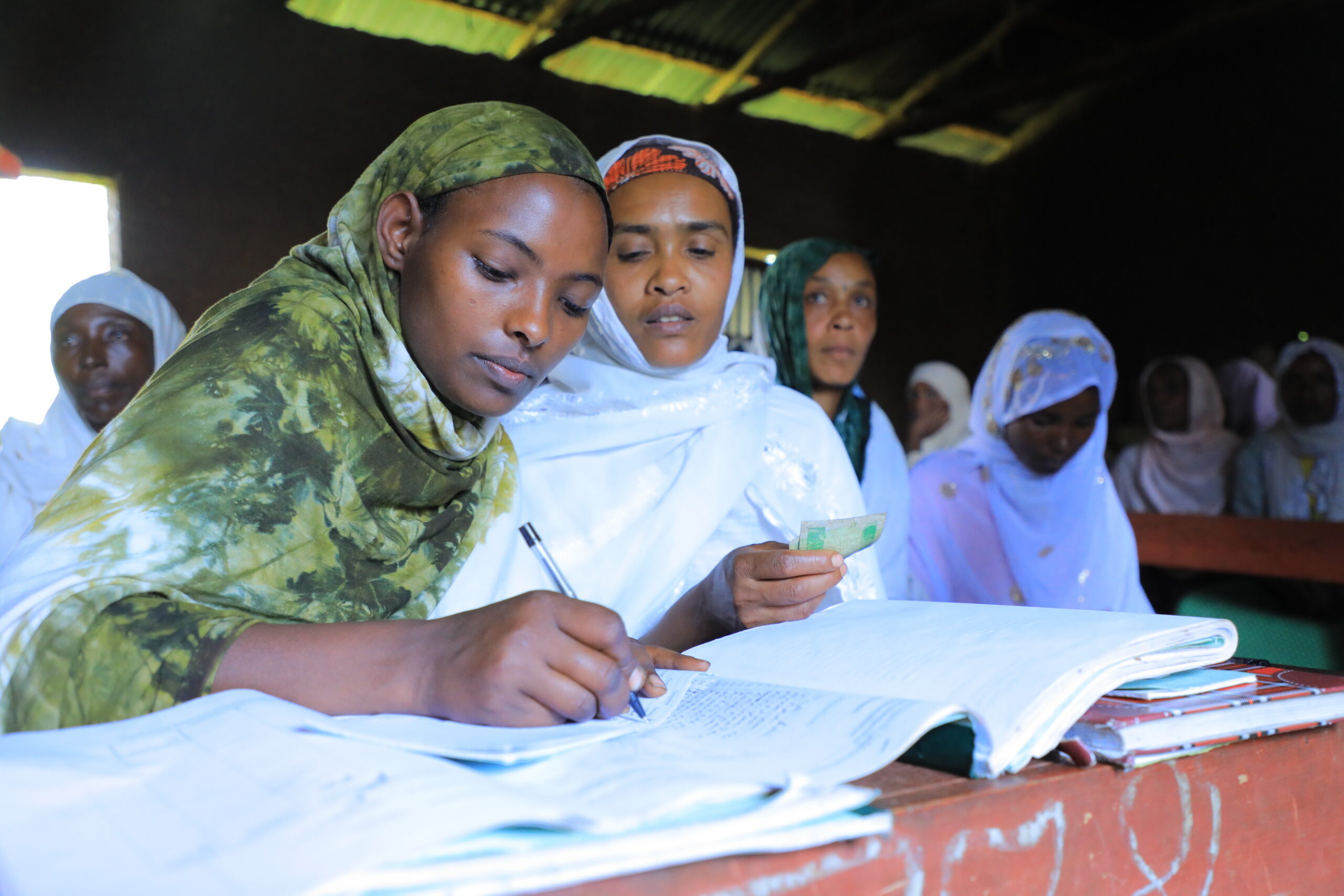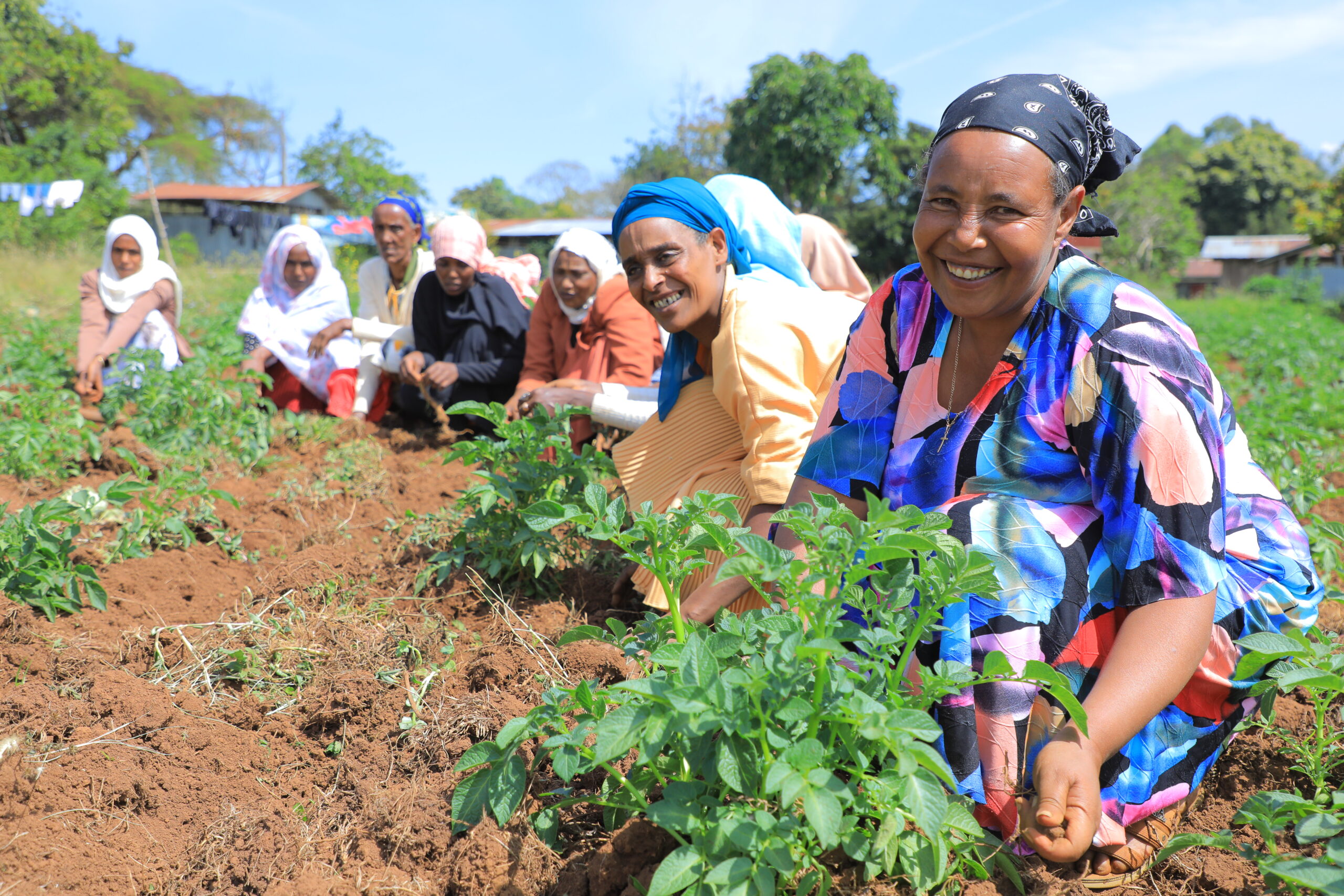In Ethiopia, Digital Green, in partnership with the Ministry of Agriculture (MoA), is piloting the digital farmer registry which aims to empower the country’s agricultural extension capacity and impact by facilitating demand-driven extension and advisory services. Digital Green created a user-friendly application and web portal that allows government functionaries, mainly development agents (DAs), to—among other parameters—collect demographic and farm-level data from the farmers in their communities, participation in extension meetings, practice adoption, and even demand for agricultural inputs. The application also offers a wide range of features that allows DAs to generate and automate reports and is expected to significantly reduce the DAs’ effort spent on data collection and report writing, which accounts for up to 20% of their time (Berhane et. al, 2018).
Digital Green trained about 60 development agents who went on to use the application in four woredas in Amhara, Oromia, and SNNPR in May 2022. The International Food Policy Research Institute (IFPRI) conducted a process evaluation and published a project note on this first stage of the pilot, where they identified the following results:
- Most of the DAs from the pilot implementation were using the application independently by the time of the assessment; more than half stated they had trained other DAs on using the application. DAs highly recommended the training with a Net Promoter Score (NPS) of 90%.
- Both DAs and woreda-level functionaries show strong interest in the application, highlighting the relevance of modules for data collection that aligns with their daily activities, which they can use to customize their extension and advisory services. The application received an NPS of 88% on relevance.
- At the time of the IFPRI evaluation, the DAs who participated in the training had registered over 13,800 farm households during the first 3-4 months. Most DAs reported being able to comfortably use the application on a daily basis without the need for additional support.
- While it was early to measure the impact of the Farmer Registry application on DAs’ work, IFPRI asked DAs about their perception of the application’s potential benefits. Most DAs responded in the affirmative that the digital farmer registry has the potential to reduce their workload (82%), help them focus on extension activities (93%), improve data generating and sharing (94%), help them easily access farmer’s data (97%), improve timely reporting (90%) and enable them to be more autonomous (95%) (Abate et. al, 2023).
- At the same time, IFPRI identified several challenges Digital Green is addressing via the scaleup of the pilot. These include data quality issues (discrepancies that might be due to DAs initially digitizing existing paper records); limited institutional support from the bureau of agriculture, gaps in effectively communicating the purpose of the registration to farmers, unreliable network reception in remote locations, hardware (tablet) limitations, and the intensive level of effort required to initially register farmers.
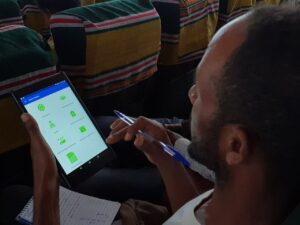
Based on the results of the initial pilot phase described in IFPRI’s evaluation, the MoA approved the expansion of the digital farmer registry pilot to another two woredas and all kebeles within the previous and new woredas for a grand total of 132 kebeles in six woredas, with an additional 200 DAs trained in the application. Digital Green expects this second phase of the pilot to result in approximately 80,000 farmer profiles completely digitized and available on the registry, a significant step to leveraging technology to improve extension service provision, leading to better livelihoods for smallholder farmers in Ethiopia.
References:
Berhane, G., Ragasa, C., Abate, G.T. and Assefa, T.W., 2018. The state of agricultural extension services in Ethiopia and their contribution to agricultural productivity. Intl Food Policy Res Inst
Sebsibie, Samuel; Ketema, Dessalegn Molla; and Abate, Gashaw Tadesse. 2023. Digital farmer registry and tailored extension and advisory services in Ethiopia: A process evaluation. IFPRI Project Note February 2023. Washington, DC: International Food Policy Research Institute (IFPRI). https://doi.org/10.2499/p15738coll2.136603
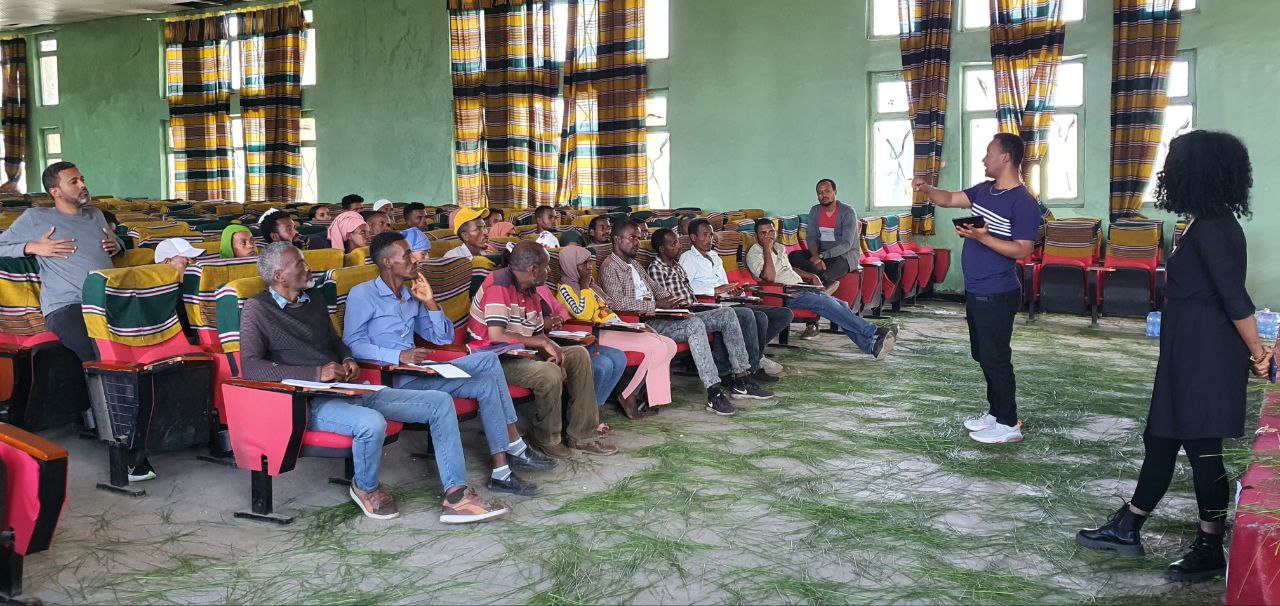

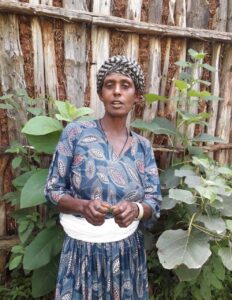 Emuye Muche, a 40 years old resident of Korata Kebele in Ethiopia is a mother of five children whose livelihood depends on the agricultural products she gets from her one acre of land, one cow, and five hens. Emuye started attending video dissemination sessions back in 2021 when the Development Agent set the session for the development group she is a part of at her house. Since then, Emuye has attended video dissemination sessions on poultry production, vermicomposting, maize side dressing, maize sowing, compost, urea molasses block preparation, PICS bag, nutrition, and vegetable production. She said: “what changed my life is the vermicompost preparation training, which was my first practice in video extension. I was surprised with the produced compost displayed in the video, which had a very attractive dark brown color like roasted coffee powder, my favorite powder. I learned from the video that it can replace Urea fertilizer, which is useful for vegetable and other crop productions. I learned that the production bed was prepared with local material at a shadowy place to prevent direct sunlight and predator birds from eating the worms. I also understood that all the materials for this compost preparation are not from outside of our area but are locally available materials.” home.”
Emuye Muche, a 40 years old resident of Korata Kebele in Ethiopia is a mother of five children whose livelihood depends on the agricultural products she gets from her one acre of land, one cow, and five hens. Emuye started attending video dissemination sessions back in 2021 when the Development Agent set the session for the development group she is a part of at her house. Since then, Emuye has attended video dissemination sessions on poultry production, vermicomposting, maize side dressing, maize sowing, compost, urea molasses block preparation, PICS bag, nutrition, and vegetable production. She said: “what changed my life is the vermicompost preparation training, which was my first practice in video extension. I was surprised with the produced compost displayed in the video, which had a very attractive dark brown color like roasted coffee powder, my favorite powder. I learned from the video that it can replace Urea fertilizer, which is useful for vegetable and other crop productions. I learned that the production bed was prepared with local material at a shadowy place to prevent direct sunlight and predator birds from eating the worms. I also understood that all the materials for this compost preparation are not from outside of our area but are locally available materials.” home.” activity. The first thing we did was collect cow dung from the field. Then, I prepared the composting bed in my backyard and brought the worms to start and manage them. I remember that the initial numbers of worms that I used were 22 in number but thanks to God, I currently have thousands, and recently, I distributed them to 12 farmers who are willing to adopt the practice.”
activity. The first thing we did was collect cow dung from the field. Then, I prepared the composting bed in my backyard and brought the worms to start and manage them. I remember that the initial numbers of worms that I used were 22 in number but thanks to God, I currently have thousands, and recently, I distributed them to 12 farmers who are willing to adopt the practice.” 